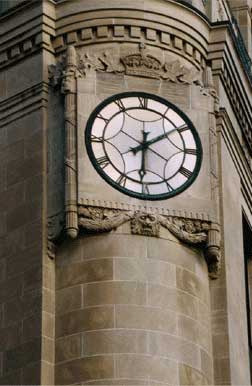|
Home > Time > What is the Science of Time?
What is the Science of Time?
Horology is the science of time, timekeepers (clocks, watches) and timekeeping.
Humans have been measuring time since the beginning of civilizations all over the world. There are almost as many calendars as there are major cultures in the world. Ever since world travel made the world a smaller place, there has been a need for international agreement as to how time is measured. Without a universally agreed upon measure of time, how can we coordinate our schedules with people in other parts of the country, or the world?
 Back in 1878, Canadian Sir Sanford Fleming proposed the system of worldwide time zones that we still use today. He recommended that the world be divided into twenty-four time zones, each spaced 15 degrees of longitude apart. Since the earth rotates once every 24 hours and there are 360 degrees of longitude, each hour the earth rotates one-twenty-fourth of a circle or 15° of longitude. However, with the advent of technology and the Internet, there is a new push for a more standardized, absolute measure of time that would make time truly universal. Back in 1878, Canadian Sir Sanford Fleming proposed the system of worldwide time zones that we still use today. He recommended that the world be divided into twenty-four time zones, each spaced 15 degrees of longitude apart. Since the earth rotates once every 24 hours and there are 360 degrees of longitude, each hour the earth rotates one-twenty-fourth of a circle or 15° of longitude. However, with the advent of technology and the Internet, there is a new push for a more standardized, absolute measure of time that would make time truly universal.
|

